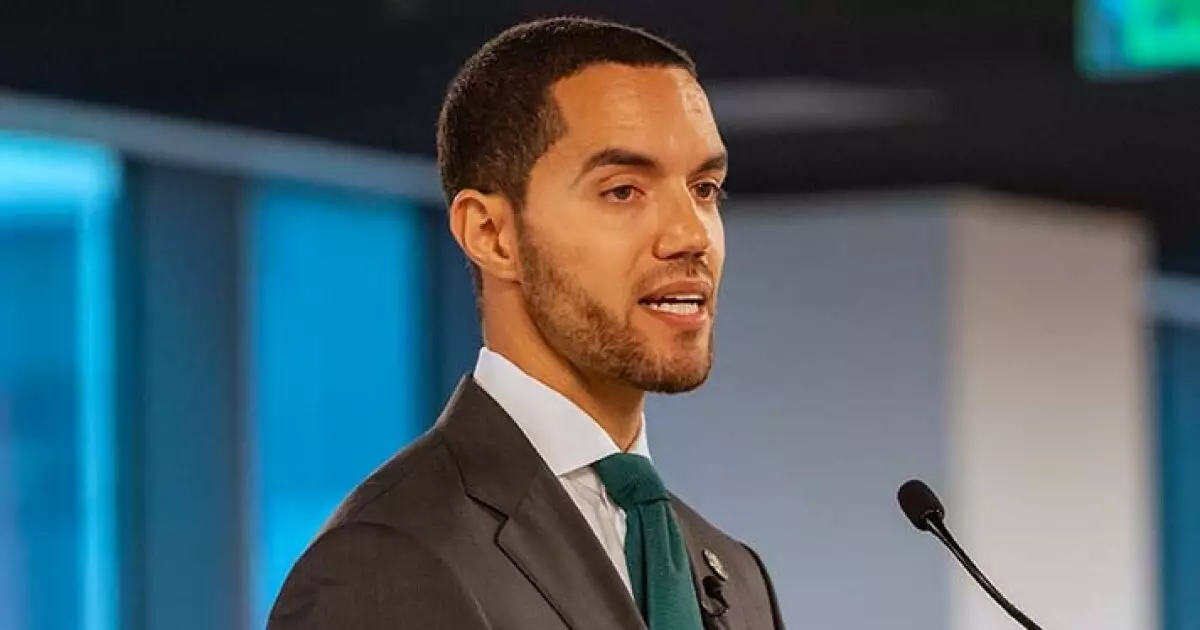A Clash of Accountability: The Houston Mayor vs. City Controller

The recent conflict between Houston Mayor John Whitmire and City Controller Chris Hollins has shed light on issues of governance, ethics, and accountability in municipal finance. The controversy erupted as Whitmire accused Hollins of potentially compromising city integrity by soliciting sponsorships from municipal bond firms for an investor conference. The mayor voiced concerns that such actions suggest a pay-to-play scenario within city operations, raising fundamental questions about ethical governance amid municipal finance.
At a press conference, Mayor Whitmire described the practice of soliciting sponsorships—ranging from $10,000 to $100,000—as unacceptable for a city entity. He termed this approach the “appearance of pay-to-play,” implying that financial contributions could unfairly influence the selection process of underwriters for municipal bonds. Whitmire’s allegations were serious, stating that bond firms expressed alarm at the possibility of running afoul of Securities and Exchange Commission regulations. He emphasized that never before had corporate sponsorships been part of Houston’s previous investor conferences.
Amid these accusations, Whitmire asserted that he has initiated an inquiry through the Office of the Inspector General. This request came with a demand for accountability and a willingness to involve law enforcement if any criminal connections are suggested. By distancing himself and his staff from the upcoming conference, the mayor illustrated a commitment to transparency and a desire to root out any ethical misconduct.
In stark contrast to the mayor’s view, Controller Hollins fiercely defended his actions. Hollins dismissed Whitmire’s claims, labeling them as “baseless” and an attempt to distract from the administration’s own shortcomings, particularly regarding fiscal policy and city governance. Pointing out that the mayor had sought corporate sponsorships for his own events, Hollins highlighted the hypocrisy of the situation. He underscored that decisions around bond contracts rest solely with the mayor and city council, distancing himself from any wrongdoing.
Hollins’ analysis of the situation also includes concerns raised by stakeholders, including those within credit rating agencies, about the city’s escalating debt and inadequate plans to stabilize revenue streams. He notes that the ongoing disputes culminate from both men facing the same financial landscape, driven by a structural budget deficit that calls for immediate attention.
This public showdown hints at deeper issues within Houston’s fiscal health and governance. Both officials, having taken office only months ago, quickly found themselves entangled in negotiations over budget deficits and bond settlements with firefighters. As they grappled with Houston’s credit rating challenges—revisions from stable to negative by major rating agencies—this conflict surprisingly serves as a microcosm of larger systemic issues facing urban government officials across the country.
While cities like Chicago have managed to conduct investor conferences without the complications of corporate sponsorship, Houston’s scenario poses a challenge for ensuring transparency and equity in public finance. The differing approaches to such conferences raise critical questions about best practices in governance and the influence of money in politics.
As Houston prepares for the upcoming investor conference, scheduled to take place without the participation of the mayor’s administration, the implications of this feud are far-reaching. The city must grapple with the public’s perception of its leadership, especially when it comes to maintaining an ethical and transparent governance model. The upcoming weeks will likely reveal how this clash will influence future dealings in municipal finance, sponsorships, and the associated responsibilities of public officials.
The conflict between Whitmire and Hollins serves as a reminder of the importance of maintaining ethical standards in public office while managing fiscal responsibility. As scrutiny from both inside Houston and outside commentary grows, leaders must work diligently to restore confidence in the city’s financial practices and governance. Their actions in the coming months will not only define their leadership but could have lasting repercussions for the trust citizens hold in local government and its capacity to manage public funds responsibly. Given the historical context of turbulent fiscal management, the outcome of this confrontation will undoubtedly shape the collective future of Houston.





